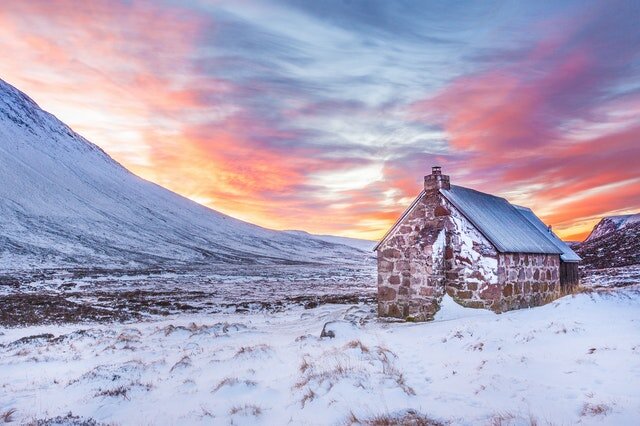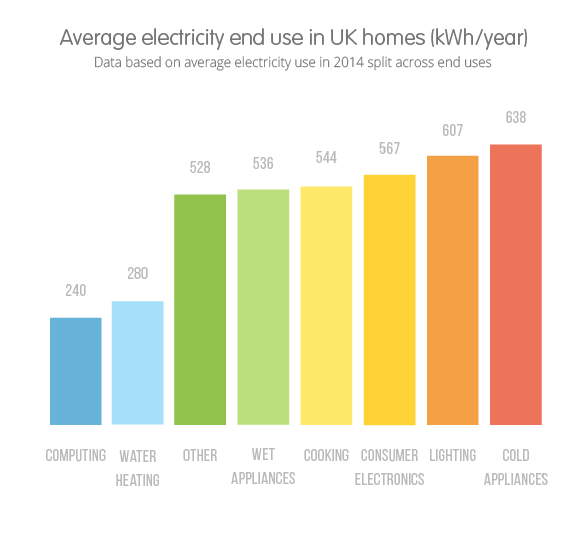What is ‘Off-grid’ living in the UK?
In the UK, we all get our power from a connected system, known as the National Grid. To live 'off-grid' means we are no longer connected to this national source and rely solely on natural gas and power for energy.
Off-grid living can take many forms, and depending on how far you're willing to go, will determine how much you 'unplug' from the Grid. City living limits a home from being off-grid to a certain point, as space constraints significantly reduce critical resources such as plentiful wind, rain and sun and the convenience of being connected within a city, far outweighs the need.
This explains why tiny home living is becoming popular, especially in green spaces or rural areas, as it allows for a more resource-efficient use of the local and natural environment for our energy needs.
So if you're undecided whether your tiny home will be off-grid or somewhere in between, let's explore each of the critical factors that enable people to live off-grid and how we can achieve 'off-grid' life.
Off-grid Living: Water
Water, it's the key to life. We need it for drinking our 10 cups of tea a day (yes, cmon, we're Britsh!), our washing, showering or bathing, the list goes on.
To be off-grid in terms of water usage, there are a few methods to achieve this:
Reduce - It sounds simple, but reducing your water usage really is the first step to being self-sufficient or off-grid in terms of water. A typical British household uses roughly 165,000 litres of water every year, that's a lot, right? Most of this water is used in showering, washing dishes and flushing the toilet. If we reduce our showers to just 3 minutes and use a water-saving head, as well as a newer toilet cistern that uses only 3 litres per flush, we can instantly save 1000s of litres with ease.
Reuse - Reusing our water is relatively simple if we build the systems in the first place. Our wastewater, from showers and sinks, known as greywater, is easy to reuse - be it by diverting it into a water tank or butt outside of the home, for usage in the garden or with a filter and cleaning, can be reused in the shower and sink - but not for drinking. This would also be an excellent time to consider your household products opting for chemical-free to reduce the filtration process.
Rain harvesting - Each time it rains, a lot of water can be harvested by using a rain capturing system. This system can be built by using a simple gutter, on top of your roof, which diverts the rain into an overground or underground water tank. The larger the tank, the better. Aiming for a tank of 2000L or more would be suitable if you expect to receive regular downpours of rain. Setting up a pump which allows the water from the tank to be pumped back into the house is usually the simplest way to go.
Off-grid Living: Electricity
As we've previously discussed in an earlier blog post, Eco-living in a Tiny Home, we looked at options for electricity generation. In this post however, we'll discuss things in more detail. With living off-grid, electricity generation is of the utmost importance after water. In the UK, the average household now uses less than 4000kwh/y. But what does that equate to?
Well, once Corrie comes on, there's a massive surge in energy usage during the ad breaks - typically from kettles being turned on for a quick brew while people wait for the adverts to end. Along with energy for brews, the main areas of electricity usage can be broken down into the following areas:
Heating
Water heating
Showers (if electric)
Washing/drying
Cooking
Lighting
Cold appliances (fridge/freezer)
Computing
Audiovisual
Other
Unknown
According to OVO energy, here's a handy graph to show where we use the most power in a typical British household.
Source: Ovo Energy
So, if we're off-grid, and living in a smaller home, we can expect to reduce some of the energy requirements for things such as heating, as a more modest space requires less energy to heat the space.
If we bring renewable energy sources into the mix, be it solar or wind, then we can drastically reduce our energy dependence on the Grid, or be fully self-sufficient from the power of the sun or wind. A 3000w solar panel array should be enough to power a typical home‘s daily usage(2-4 people), allowing you to be off-grid up to 80% of the year, as this will typically not cover you during the winter.
The placement of your home, whether it's south-facing, the number of sunny days you get in a given year, all must be taken into consideration when living off-grid. We recommend that you create a battery bank, old car batteries would suffice, allowing you to store the energy you create from your renewable sources when you're not using it.
As cold appliances, such as our fridges and freezers take up the highest energy needs, we can reduce this by ensuring we purchase A+ energy rated appliances, defrosting them regularly, and even using a smaller appliance which requires less power. Lighting wise, all lamps, bulbs or lights should be LEDs, 3-5W would be okay in most settings, meaning you're able to reduce further your load on your energy network, as well as the overall energy consumption.
Lastly, let's not forget about the ol' jenny also known as a Generator. They're powerful, easy to use and relatively cheap if you're using petrol to power it. But, the noise pollution and the impact on the environment isn't a particularly useful option, but it's one to think about.
We must take into account the weather in the UK is not reliable, especially for solar, and as such, it is always advisable to have an additional power source such as a generator, or at the very least, ‘load’ your heavy appliances such as washing machines or boilers, to turn on during the day when it’s daylight.
To conclude, we can reduce our energy usage by living in a smaller space, we can consider which way our home is facing to make the most of the natural light we receive, and finally, we can choose energy-efficient appliances to reduce the wastage of unnecessary energy.
Off-grid living: The Internet
Yes, it's now become such a necessity in modern-day life that the internet is classified as a utility. With all manner of things, from banking to ordering shopping now done online. The majority of households will require an internet connection, and a stable one at that while you live off-grid.
For the lucky ones that are living on a farm, in a friends garden, or fortunately parked next to a residential area, your internet hook up will be as simple as it would be connecting a line to a new home. However, for those who have chosen countryside living, a stable internet connection may become your biggest challenge.
Fortunately, there are a few options. If you don't live entirely in the sticks, then you can get yourself an internet dongle. These dongles can be found by most UK phone companies, which allows you an allowance of data per month - ranging from 1GB and up. This is fine if all you need to do is send a few emails here and there, however, if you want to stream films you'll find that even the largest of dongles won't allow you enough data to get through one episode of Living Big In A Tiny House on Youtube.
What then, is the answer?
Satellite broadband is the answer.
A British-based company, Bigblu, has three packages on offer - bronze, silver and gold. For anyone that works from home, needs to Zoom friends or work, and requires a fast internet connection, you're looking to pay a whopping £69.99 a month after installation fees. Compared that to other high-street internet providers, it's roughly twice the cost.
But what you lose in money, you gain in convenience. You're likely going to need an internet connection, and getting a line installed on your property is likely to be costly, for simply installing it, let alone paying the monthly fee. With reductions in your overall outgoings, we expect that while it may pain you to pay so much for internet, your cost-savings from power generation and heating, will likely more than offset the extra pennies being spent.
Off-grid Living: Food self-sufficiency
I understand that not everyone is a green thumb, but in all fairness, some food, especially vegetables, practically grow themselves.
We highly recommend that, if you wish to be off-grid, that you at least set up some simple herb gardens, a few fruit trees and some root vegetables that should provide you food throughout the summer and into the autumn months.
If you were to grow some of your own food, it's not only a pleasure to see it grow from seed to plate, and you'll also get to reap the benefits from your organic* veg.
Putting the water reclamation practices into place that we mentioned earlier in the post, will mean that your veggies will always have enough water to grow. You can even go as far as using your food waste, placing it into a compost heap or container, to create your compost. 8-10 weeks later, you'll have 100% organic compost that you can use to revitalise the soil and plants around your home for a bountiful crop.
If you're into your gardening, we suggest that you check out sustainable farming practices, such as vertical farming which can be suitable for indoor plants on a small-scale. Permaculture is another fantastic way of cultivating food, which helps you to create long-term food self-dependence. We also really like the idea of micro-greens, foraging for herbal plants and even growing mushrooms -the world is your oyster. (We'll arrange a separate article about growing methods).
Off-grid Living: Equipment
There's a lot of equipment that is necessary for off-grid living, so we'll quickly give you a rundown.
Renewable energy - PV solar cells, wind turbine. Using these as your primary energy generation, you'll more than likely have enough power for all of our household needs.
Heating - Ground source heat pump, wood-burning stove, gas or electric heater. We love wood-burning stoves as they can double up as not only the heater for the home but also as an oven. Some can even be connected up to your underfloor heating system.
Composting toilet - These are a brilliant and easy way to reduce your carbon footprint and water usage. See here for more info.
Outdoor oven - Be it a BBQ, a pizza oven or even an electric grill, enjoying the great outdoors while cooking, can be a fantastic way to enjoy living off-grid.
Cafetières/Italian coffee maker - If you're a coffee-lover, then simply placing it onto your gas hob and let it work its magic. This can reduce your energy needs, compared to boiling a kettle.
Homebiogas - We LOVE the idea of having your very own bio-digester, using your human waste (urgh...) and the food waste from your kitchen to create methane, which can be connected to your home to cook with. Plus, the system also creates liquid fertiliser - it's a no-brainer for when you're off-grid. See our article here for more info on this.
Water butt or tank - Depending on how much waster you use, and what level of water harvesting you can achieve, you could well require a tank as little as 200L all the way up to 5000L or more.
So that's it. That's our essential guide to what 'off-grid living' is.
Thanks for reading. If you have any input or your own ideas of what makes off-grid living possible, drop us a message in the comments or even leave us a message on one of our social media platforms.







